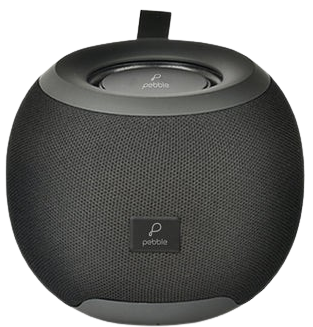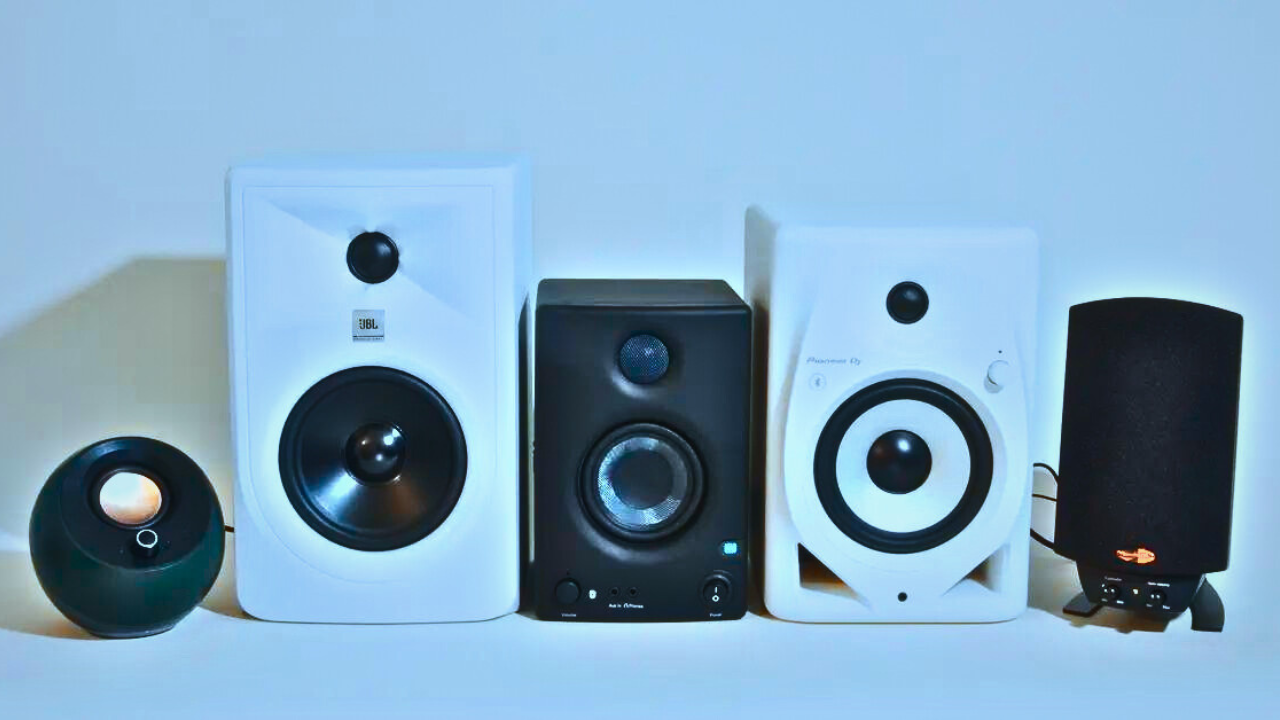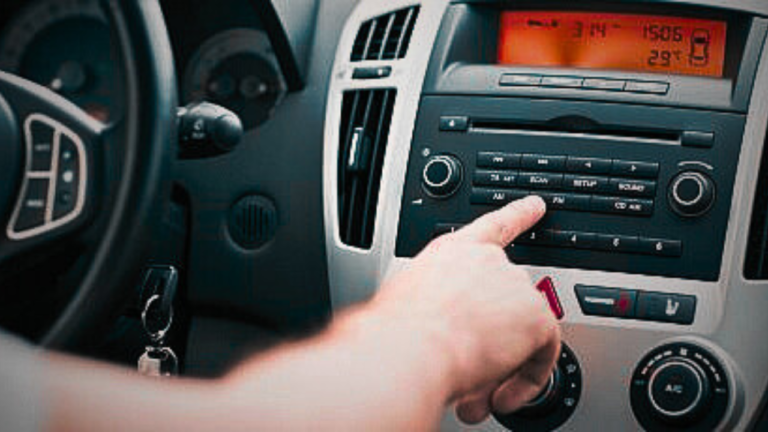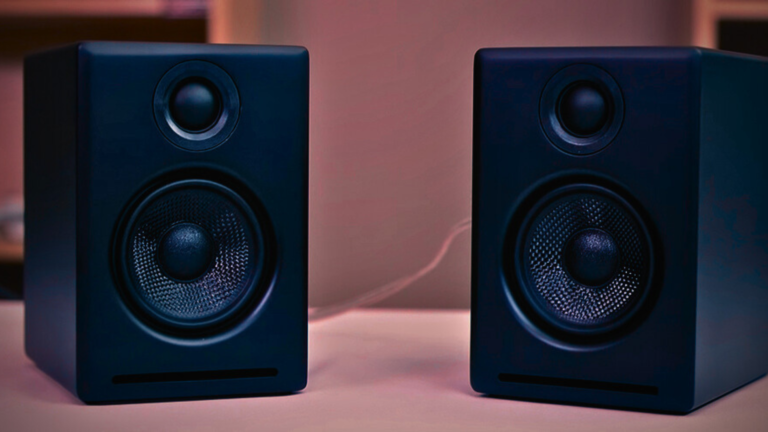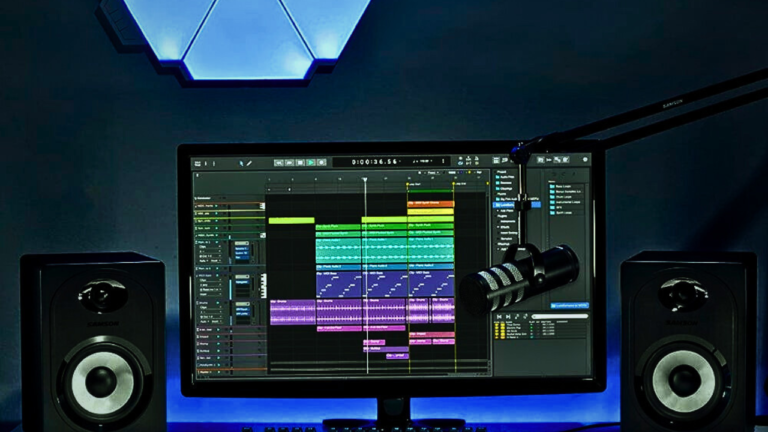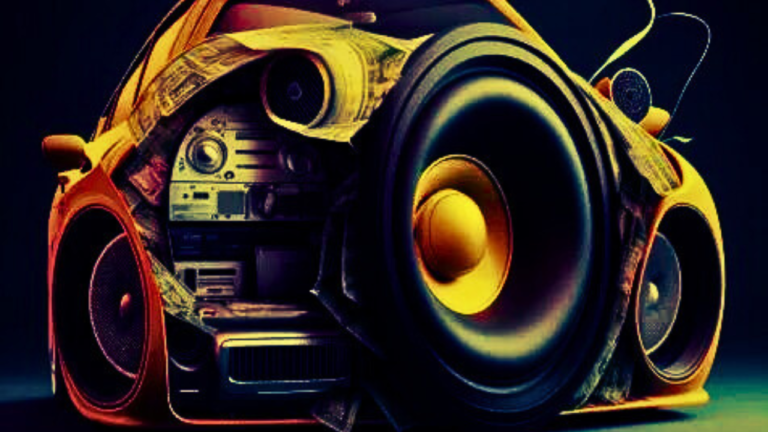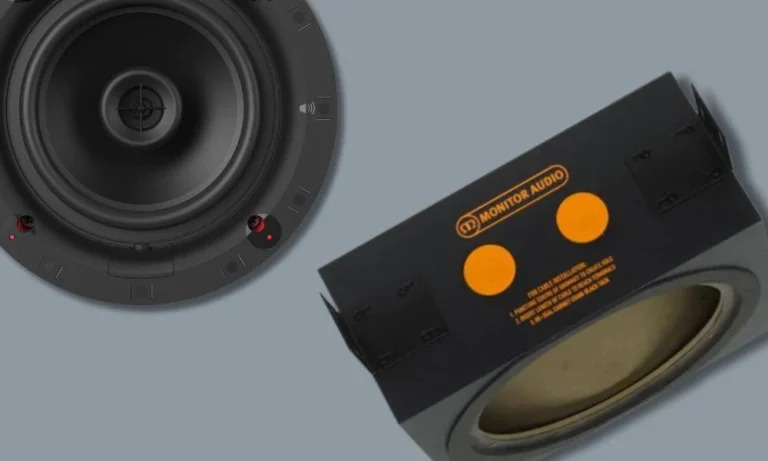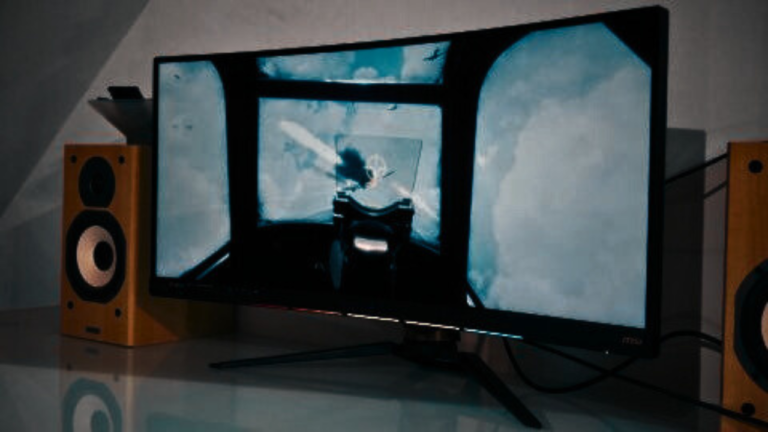How To Connect Bose Speakers To Regular Speaker Wire?
If you’re the proud owner of Bose speakers, you’re likely familiar with the incredible sound quality they provide. But what if you want to hook them up to a regular speaker wire? Fear not; it’s not as complicated as it might sound. This helpful guide is here to help you through each step of connecting your Bose speakers to standard speaker wire.
“The key to superior sound is not only the device itself but also the connection.” – Anonymous Audiophile
In this article, you will find:
- A comprehensive guide on connecting Bose speakers to standard speaker wire.
- Essential tools are needed for the setup.
- Tips and tricks to enhance your audio experience.
Whether you’re a home theater connoisseur looking for the perfect surround sound setup or a music lover seeking to optimize your audio output, this guide can provide you with the knowledge you need. So, sit tight, grab your Bose speakers and speaker wires, and let’s boost your sound experience.
Read also: Why Do My Speakers Sound Muffled?
What are the different types of Bose speakers that can be connected to regular speaker wire?
There’s quite a variety of Bose speaker models that can be connected to regular speaker wire, many of which are common favorites in audio spaces for their top-notch sound quality and design. Here, we will walk you through some of the models:
- Bose Acoustimass Speakers: Known for their compact size and impressive bass response, Acoustimass speakers from Bose can connect directly to standard speaker wire. The audio input terminal situated at the back can take in the regular wire.
- Bose Lifestyle Home Theater Systems: Even though these systems usually include wireless speakers, they can also work with standard speaker wire. This makes Bose Lifestyle systems a flexible audio solution to suit all your connectivity needs.
- Bose Sound Touch Stereo JC Series: These are premium stereo speakers that can also be connected through regular speaker wire. For these speakers, the audio input ports are conveniently marked with different colors for easy setup.
- Bose 201/301 Series: The direct/reflecting speaker technology used in these models provides an immersive sound experience. The 201 and 301 series accept regular speaker wire, making them easy to use in a traditional audio setup.
Remember, it’s crucial to confirm whether your particular model accepts regular speaker wire before proceeding with any setup, as configurations can vary between different models and product lines.
You should also ensure that your Bose speakers are initially configured to use passive, rather than active, connections, as most regular speaker wires would be used in a passive setup. Changing from an active to a passive setup will typically require a simple switch in the system settings.
What is the recommended gauge of speaker wire to use when connecting Bose speakers?
When choosing speaker wire to connect your Bose speakers, the gauge or thickness of the wire becomes significant. Generally, for most speakers, a 16-gauge wire is a good start. However, speaker wire gauge requirements can vary depending on a couple of factors, including the overall cable length and the type of speaker system. The wire gauge reflects the electrical resistance, and wire with a smaller gauge has less resistance.
‘Why does the wire gauge matter?’, you might ask. Great question. Let’s explain that. Thicker wire (which means smaller gauge numbers) can carry an audio signal further without losing strength, which is crucial when you’re arranging a home theater system and the speakers may be quite a distance from the amplifier. All in all, if the speakers have a higher impedance (measured in ohms), a thicker wire is going to ensure better performance.
Here’s a simple guide you can stick to when deciding on the wire gauge:
- If your speakers are within 50 feet of the amplifier, 16-gauge wire is suitable.
- For distances of 50 to 100 feet, it would be clever to upgrade to 14-gauge wire
- If the speakers are more than 100 feet away, a 12-gauge wire will serve you better.
Remember, the aforementioned distances are flexible estimates, and slight variations should not significantly affect speaker performance. Ultimately, consider the specific needs of your set-up and don’t be afraid to consult with an audio professional.
So, choose your speaker wire wisely, ensuring one that complements your Bose speakers remarkably. Happy listening!
Are there any specific adapters or connectors required to connect Bose speakers to regular speaker wire?

While Bose speakers are renowned for their exceptional sound quality, they often use a proprietary speaker wire, which can present some challenges when attempting to use regular speaker wire. Fear not! There are specific adapters and connectors that can assist with the task.
Spade Connectors:
These are U-shaped connectors that can securely fasten to the speaker’s terminals. They are an excellent choice for a sturdy and long-lasting connection. Keep in mind that you would need to confirm whether your Bose speakers use a standard-size connector or a mini-connector, as this will determine the size of the spade you will need.
Banana Plugs:
Banana plugs are another popular option. They offer ease of use, as they can be inserted directly into the binding posts on your speakers. These plugs have the advantage of reducing the risk of creating a short circuit that can occur when loose wire strands contact other terminals.
Pin Connectors:
If your Bose speakers have pin-type inputs, pin connectors are your go-to option. They are simple to use and offer a solid connection, which can improve the overall audio quality.
Remember, the type of connectors or adapters you require will depend on your specific model of Bose speaker. Always check the speaker connections before purchasing any connectors.
In addition to these connectors, you may also need a wire stripper to adjust the length of your speaker wire and expose the copper wire. This tool is usually inexpensive and can be found at most hardware stores.
It’s worth noting that while these adapters or connectors can ease the connection process, they are not absolutely necessary. If you are comfortable working with speaker wire directly, you can connect your Bose speakers to regular speaker wire without them; it just requires a bit more finesse and patience.
Read also: Can You Replace 6.5 Speakers With 6×9?
What are the steps involved in connecting Bose speakers to regular speaker wire?
Connecting your Bose speakers to regular speaker wire is a simple process that can be completed in a few steps. Here, we’ll break down this process so you can start enjoying high-quality sound in no time.
- Identify the Connectors: First things first. Identify the connectors on your Bose speakers. Some Bose speakers use traditional speaker wire connectors, while others may have proprietary connectors. If your Bose speakers do have proprietary connectors, an adapter may be required, as we will discuss later.
- Turn Everything Off: Before beginning the connection process, always ensure all equipment is turned off. This is a safety measure that protects your speakers, your equipment, and, most importantly, you.
- Connecting Speaker Wires: At each end of the speaker wire, you will see a positive (+) wire, which is typically red, and a negative (-) wire, which is usually black. Connect the red wire to the red terminal on your speaker, and the same applies to the black wire. Repeat this process with the other end of the amplifier.
- Running Test: After you have connected the wires properly, now turn on your amplifier and speakers. Play some music to test the sound coming from your newly connected Bose speakers. If the sound is clear and balanced across the speakers, then you can confidently say your speakers are well connected.
- Fixing Issues: If you’re experiencing sound issues such as static or distortion, check each connection again. Ensure each component is correctly and firmly attached, and there are no loose wires. If needed, try re-stripping the speaker wire ends and reconnecting. If the problem persists, you may need help from a professional, or you might be dealing with incompatible equipment.
Remember, the goal is to enjoy the fantastic sound that Bose speakers offer without any technical glitches. If you carefully follow each of these steps, you should have no issues connecting your Bose speakers to regular speaker wire.
Are there any potential compatibility issues to be aware of when connecting Bose speakers to regular speaker wire?

Compatibility issues can sometimes arise when connecting Bose speakers to regular speaker wire. It’s imperative to remain mindful of these issues to ensure your audio experience remains undisturbed. Let’s discuss some potential hurdles you might come across during the connection process.
- Impedance Mismatch: One of the most critical factors to consider when connecting your Bose speakers to regular speaker wire is impedance, measured in ohms (Omega). Your Bose speakers and the amplifier must carry similar impedance ratings to ensure effective sound reproduction. An impedance mismatch could likely result in poor audio output or even speaker damage.
- Wire Length: The length of the speaker wire can be another key factor that could impact your sound quality. Does it sound strange? It’s science! Longer wires have a higher resistance, which can cause signal loss, especially if you’re using a wire with a higher gauge (thinner wire).
- Connectors: Although Bose speakers generally use universal connectors, there might be instances where the Bose system has different connector types, such as pins or banana plugs, and your regular speaker wire is not equipped with the compatible connector. In those cases, considering an adapter could be a viable solution.
In conclusion, while connecting Bose speakers to a regular speaker wire might seem like a straightforward task, there can be potential compatibility issues that could hinder your listening experience. Considering key factors such as impedance, wire length, and connectors before you start the connection process can save you from running into trouble down the line.
Conclusion
In conclusion, connecting your Bose speakers to regular speaker wires is a relatively straightforward process. However, attention to detail is crucial, as the quality of your audio experience hinges on a proper setup.
Despite the intimidating lingo and technical jargon that you may encounter, don’t be dissuaded. It’s all about understanding a few basic concepts, from identifying the correct type of wire to finding the right connectors or adapters and following the right steps. Ensuring you are adequately informed and prepared can make a world of difference.
Remember, Bose speakers are known for their high-quality sound, and more often than not, achieving this involves getting the connection right. A quick recap:
- Not all Bose speakers can be connected using regular speaker wires; only specific models allow for this. It’s essential to consult your user manual or consult with Bose support.
- The recommended gauge of speaker wire varies based on the length and type of wire, in conjunction with the speakers you are using.
- While adapters or connectors are not always required, they can provide a more stable connection and thereby enhance sound quality.
- Follow each step in the connection process carefully to minimize any potential issues or compatibility breakdowns.
Lastly, as always, safety comes first. Ensure the power tools are off while connecting or disconnecting your Bose speakers. Enjoy the experience of exploring, connecting, and mastering your Bose sound system. Remember, the journey to impeccable sound is always worth it.
Read also: Does The Audio Technica Need Speakers?
FAQs
Can I use any regular speaker wire to connect my Bose speakers?
Yes, you can. However, the sound quality might differ based on the quality and gauge of the wire. It’s always recommended to use a high-quality speaker wire with a suitable gauge.
Will I void my Bose speaker warranty if I use regular speaker wire?
Generally, using a regular speaker wire doesn’t void the warranty of your Bose speakers. But it’s recommended to check the user manual or contact Bose customer support for specific details.
Is it necessary to use an adapter to connect my Bose speakers to the regular speaker wire?
Depending on the model of your Bose speakers, you might need an adapter. Some speaker models have simple wire connectors, while others might require specific types of adapters. Refer to the speaker’s manual for precise instructions.
Can I connect my Bose speakers to any audio equipment with regular speaker wire?
Yes, but compatibility may vary depending on the output impedance and power rating of your equipment. Ensure your equipment matches the specifications required by the speakers.
What is the impact on the sound quality if I use a regular speaker wire for my Bose speakers?
The type and quality of speaker wire you use can impact the overall sound performance, including clarity and tonal balance. High-quality, suitable-gauge speaker wires are recommended to preserve sound quality.
Is there any risk in connecting my Bose speakers with a regular speaker wire?
If done correctly, there is minimal risk involved. However, improper connections can damage the speakers or the audio equipment. Always disconnect the power before making the connections.
How often should I replace the regular speaker wire connected to my Bose speakers?
With proper handling and maintenance, a good-quality speaker wire should last for several years. However, if you notice a drop in sound quality or physical damage to the wire, then it’s time for a replacement.
Do I need professional help to connect my Bose speakers to a regular speaker wire?
This largely depends on your comfort level with handling audio equipment. Most Bose speakers have straightforward, user-friendly connection points. If you still feel unsure, it’s better to seek professional help.
Can I extend the regular speaker wire if I want to place my Bose speakers at a distance?
Sure, but keep in mind that extending the wire length might lower the overall transfer of sound signals, potentially affecting sound quality. Using a high-quality wire and maintaining a minimal length can help mitigate this.
How can I ensure optimal sound performance when connecting my Bose speakers with regular speaker wire?
Check the connections, use a speaker wire with the right gauge, maintain the speaker wire properly, and position the speakers correctly for the best sound performance.

Hey there! I’m Henry Jack, the voice behind speakerrealm.com, your ultimate destination for everything speakers. Whether you’re a seasoned audio enthusiast or just starting to explore the world of sound, you’ve come to the right place.
At Speaker Realm, I dive deep into the realm of speakers, bringing you comprehensive reviews, insightful guides, and the latest trends in the industry. From floor-standing behemoths to compact bookshelf wonders, I cover it all.
I’m passionate about helping you find the perfect speakers to elevate your audio experience. Whether you’re setting up a home theater, upgrading your sound system, or just looking for some quality audio gear, I’ve got you covered.
But Speaker Realm isn’t just about technical specs and performance metrics—it’s also about the art and science of sound. I explore topics like acoustic design, speaker technology, and the impact of audio on our lives.
So whether you’re a casual listener or a hardcore audiophile, join me on this journey through the world of speakers. Let’s turn up the volume and explore the endless possibilities of sound together at speakerrealm.com!
